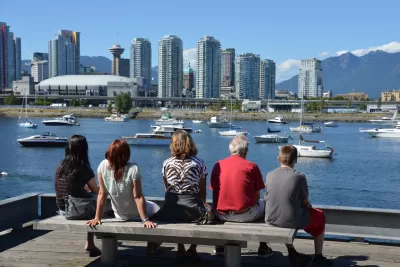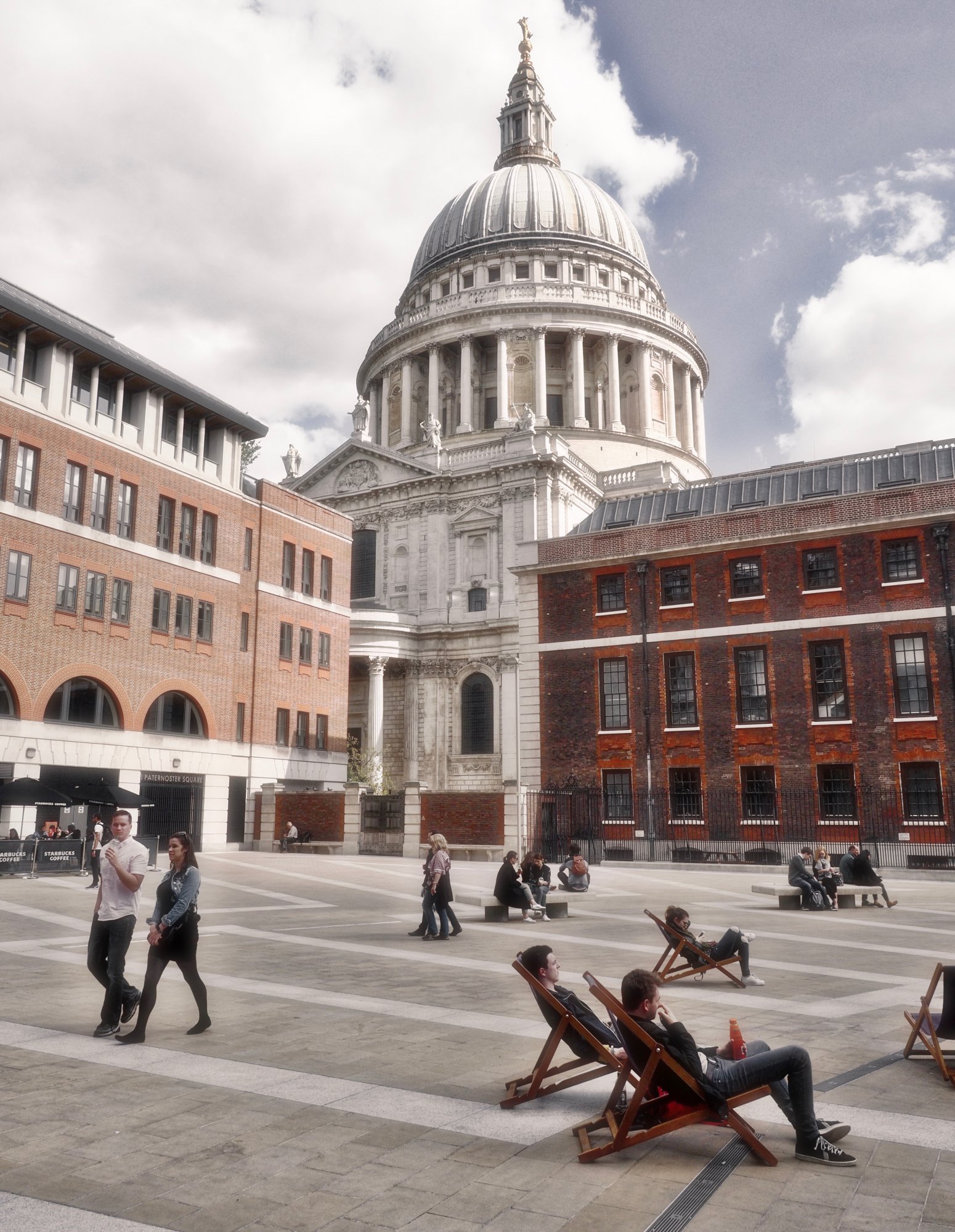"My twitter stream is alive with the sound of placemaking," writes Chuck Wolfe. While preparing for this week's Placemaking Week in Vancouver, he explains the importance of PPS-led programming and hopes for various panels, proceedings and events.

Citing the increasingly popular twitter hashtag, #placemaking, Wolfe recounts the three initiatives that will unfold in Vancouver this week under the umbrella of the New York-based Project for Public Spaces (PPS), including events surrounding the PPS Placemaking Leadership Council, the Future of Places, and ProWalk/ProBike/Pro Place.
The common themes address how to create accessible urban places that are useful, meaningful and enjoyable to a full range of residents and visitors alike--qualities that help people decide where they really want to live.
Most clear, notes Wolfe, is a spirit of empowerment in how the public realm develops, always contrasting with "starchitecture," rigid design or top-down plans. For PPS, a carefully studied, bottom-up approach is often the secret sauce of successful urban places. The Vancouver proceedings are full of creative, equity-centered language and ideals, in direct preparation forthe United Nations' Habitat III Conference, which follows in Quito, Ecuador in October.
As he summarizes:
The placemaking movement is hitting stride, and its principles are embraced by a number of professional organizations---from architects, to planners, to new urbanists---under different labels but with similar livability goals. I'm not so interested anymore about who owns the ideas, or whether a design professional is needed to implement a livable city. While not a design professional, I am more concerned... that a place-based approach remains more than pablum, and truly honors the latent needs of urban inhabitants and the findings of those well-versed in the academic discipline of "place-attachment".
Wolfe concludes by referencing prior writing focusing on authentic "placemaking" with a purpose, including one-time events that crystallize potential alternative uses of urban spaces, and real neighborhood experiences that offer a meaningful gloss on how to make cities better and increase shared places for all:
Because I think success often emerges from urbanism that we already have--which is readily observable, and already there to be nurtured---I'll be going to Vancouver with an informal metric in mind: how many of the panels, proceedings, talks and strategies avoid immediate prescription without critical analysis? Will they remember to look first for what people have, want and need?

FULL STORY: Why My Twitter Feed is Singing About Placemaking

Planetizen Federal Action Tracker
A weekly monitor of how Trump’s orders and actions are impacting planners and planning in America.

Restaurant Patios Were a Pandemic Win — Why Were They so Hard to Keep?
Social distancing requirements and changes in travel patterns prompted cities to pilot new uses for street and sidewalk space. Then it got complicated.

Map: Where Senate Republicans Want to Sell Your Public Lands
For public land advocates, the Senate Republicans’ proposal to sell millions of acres of public land in the West is “the biggest fight of their careers.”

Maui's Vacation Rental Debate Turns Ugly
Verbal attacks, misinformation campaigns and fistfights plague a high-stakes debate to convert thousands of vacation rentals into long-term housing.

San Francisco Suspends Traffic Calming Amidst Record Deaths
Citing “a challenging fiscal landscape,” the city will cease the program on the heels of 42 traffic deaths, including 24 pedestrians.

California Homeless Arrests, Citations Spike After Ruling
An investigation reveals that anti-homeless actions increased up to 500% after Grants Pass v. Johnson — even in cities claiming no policy change.
Urban Design for Planners 1: Software Tools
This six-course series explores essential urban design concepts using open source software and equips planners with the tools they need to participate fully in the urban design process.
Planning for Universal Design
Learn the tools for implementing Universal Design in planning regulations.
Heyer Gruel & Associates PA
JM Goldson LLC
Custer County Colorado
City of Camden Redevelopment Agency
City of Astoria
Transportation Research & Education Center (TREC) at Portland State University
Camden Redevelopment Agency
City of Claremont
Municipality of Princeton (NJ)



























